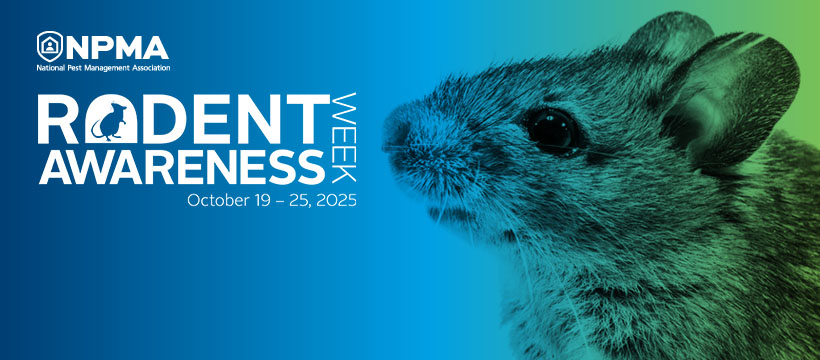Protect Your Home or Business from Fall Rodent Activity
As temperatures drop across Florida, rodents like mice and rats begin seeking warmth and shelter indoors—often finding their way into homes, warehouses, and commercial buildings in search of food and protection.
In observance of Rodent Awareness Week, taking place October 19–25, 2025, Turner Pest Control joins the National Pest Management Association (NPMA) in raising awareness about the serious health and property risks associated with rodent infestations—and the importance of proactive prevention.
Rodents are more than just a nuisance—they pose real threats to health and property. They can contaminate food and surfaces, trigger asthma and allergies, and transmit dozens of diseases to humans. Early detection and prevention, such as sealing entry points and maintaining sanitation, are essential to keeping homes and businesses protected year-round.
Why Rodent Awareness Week Matters
Rodent season peaks as temperatures cool. During the fall and winter, roof rats, Norway rats, and house mice seek entry into structures through cracks as small as a dime or openings around pipes, vents, and doors.
These pests aren’t just unsightly—they’re destructive and dangerous. Rodents can:
- Chew through wires, insulation, and packaging.
- Damage stored inventory, vehicles, and equipment.
- Spread bacteria and allergens through droppings and nesting material.
- Create fire risks through gnawed electrical wiring.
For commercial facilities such as restaurants, hotels, food service operations, and schools, even a minor rodent issue can escalate quickly—impacting safety, compliance, and reputation.
Health Risks Associated with Rodents
According to NPMA, rodents can transmit more than 35 diseases to humans, directly or indirectly. Some of the most concerning include:
- Hantavirus: Spread through inhalation of dust contaminated with rodent urine or droppings, leading to Hantavirus Pulmonary Syndrome (HPS)—a severe and sometimes fatal respiratory illness.
- Salmonella: Rodent droppings can contaminate food or preparation surfaces, causing Salmonellosis, which results in diarrhea, fever, and cramps.
- Leptospirosis: Caused by bacteria found in rodent urine, leading to potential kidney or liver damage if untreated.
- Lymphocytic Choriomeningitis Virus (LCMV): Carried by house mice and capable of causing flu-like symptoms or neurological complications.
- Plague & Tularemia: Though rare, these diseases can be transmitted through fleas or contact with infected animals, with potentially severe outcomes.
Additionally, rodent dander and droppings can exacerbate asthma and allergy symptoms, particularly in children or individuals with pre-existing respiratory conditions.
Rodent Facts You Might Not Know
- The Gnaw is Real: Rats’ front teeth never stop growing—and are harder than iron.
- They Don’t Need Much: Mice can survive on minimal food and moisture.
- Fast Reproduction: A single pair of mice can produce hundreds of offspring in a year.
- Roof Rats Rule Florida: Skilled climbers that thrive in attics, trees, and rooflines.
Rodent Prevention Tips
Rodent prevention starts with good maintenance and attention to detail.
Whether protecting your home or your business, follow these NPMA-recommended steps:
- Seal cracks and gaps around doors, windows, pipes, and foundations.
- Store food in airtight containers and dispose of garbage regularly.
- Keep attics, crawl spaces, and storage areas sealed and ventilated.
- Remove clutter, debris, and woodpiles near structures; store firewood at least 20 feet away.
- Schedule regular professional inspections to identify and close entry points before pests settle in.
Don’t Let Rodents Settle In This Season
As we recognize Rodent Awareness Week, now’s the perfect time to take a closer look around your home or workplace for signs of unwanted guests. If you spot activity, Turner’s team is here to help with fast, effective, and long-term solutions.
Book your free inspection today and let us help you stay pest-free.




